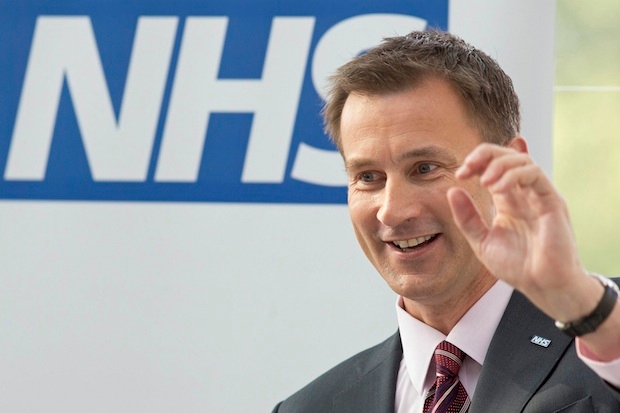That 98 per cent of junior doctors have voted in favour of strike action over their new contract shows the extent of the stand-off between the medical profession and Jeremy Hunt. It is not possible that all the members of the BMA who turned out to vote (76 per cent) are raving left-wingers. Most of them weren’t particularly politicised before this dispute.
The question that a number of Tory MPs and ministers are asking is whether a generation of people who, given their education and income bracket, fall quite naturally into the group normally pretty likely to vote Tory are now never going to do so because of the bad blood between the medics and the government on this matter. Tory MPs have been asked in the past few days to be as vocal as they can in the Chamber and on social media about Hunt’s readiness to return to the negotiating table and the importance of the BMA doing the same. There is a general awareness in the Tory party that this issue has turned far more toxic than they imagined it would – something Max Pemberton examined in the Spectator last week.
The BMA certainly hasn’t covered itself in glory during this row, which means that it does mirror the stand-offs between the teaching unions and Michael Gove in the last Parliament. As I wrote a few years ago, Jeremy Hunt is a very keen student of Gove at education, but I wonder whether he might do well to be a good student of Gove at justice, where he is trying to calm down rows provoked by his predecessor, and wooing some of the most antagonistic organisations such as the Howard League for Penal Reform. Gove seems to have learned from his time at education that even comments that are entirely well-meant can be used by the sector’s vested interests to create a narrative that you are an enemy. Gove described the unions as ‘enemies of promise’, which the unions told their members was a description of teachers. Similarly, Jeremy Hunt upset doctors very early on by saying that a new contract would bring a ‘sense of vocation and professionalism’ back. Doctors took this as a direct insult about their commitment to the job, not a critique of the wording of the contract, and so the negotiations started on the wrong foot.
The question is now whether Hunt decides to copy Gove the Education Secretary, who had all the right motives but undermined them with a relentless pugnacity to the extent that his party colleagues turned on him and had him moved in a reshuffle, or whether Hunt copies Gove the Justice Secretary, who has learned his own lessons and now applies soothing balm before fighting vested interests as Justice Secretary. If the Tories do want doctors to support them, a great deal of soothing balm is needed from somewhere.
P.S. I should declare a personal interest in this: I am married to a junior doctor.







Comments